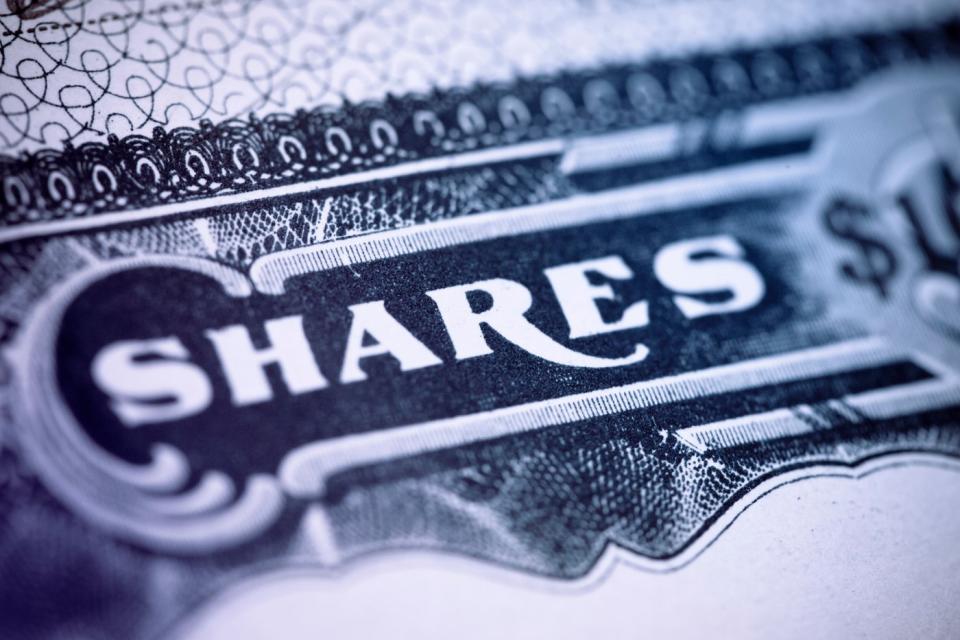Although artificial intelligence (AI) has been the clear-cut next-big-thing trend driving Wall Street’s major stock indexes to record-closing highs in 2024, don’t overlook the equally important role stock-split euphoria has played in lifting equities.
Stock splits are a tool publicly traded companies have at their disposal that allows them to cosmetically adjust their share price and outstanding share count. The “cosmetic” aspect of splits is that adjusting a company’s share price and share count by the same factor has no impact on its market cap or underlying operating performance.
There are two variations of stock splits, with investors favoring one considerably more than the other. Reverse-stock splits are designed to increase a company’s share price, usually with the goal of ensuring continued listing on a major stock exchange.
Comparatively, forward-stock splits aim to reduce a company’s share price to make it more nominally affordable for retail investors who may not have access to fractional-share purchases through their broker. Since this type of split is conducted by companies in a position of operating strength, investors tend to focus their attention on those enacting forward splits.

In 2024, just over a dozen well-known businesses have announced or completed a stock split — all but one of which was of the forward-split variety. Some of the most well-known include Nvidia‘s 10-for-1 split in June, Broadcom‘s 10-for-1 split in July, Chipotle Mexican Grill‘s historic 50-for-1 split in June, and Walmart‘s 3-for-1 split, which kicked things off in late February.
Aside from these being time-tested market leaders, companies announcing stock splits have, statistically speaking, handily outperformed the benchmark S&P 500 in the 12 months following their split announcement (since 1980). Thus, investors are always trying to guess which stock(s) could be next to join this exclusive club.
Considering that most companies choose to announce a split when they release their quarterly operating results, two unstoppable companies stand out as logical candidates to become Wall Street’s next stock-split stocks in September.
Costco Wholesale
The first sensational business that looks poised to announce a stock split next month is a company that’s rocketed higher by nearly 153,000% since its initial public offering (IPO) in December 1985, including dividends. I’m talking about warehouse club Costco Wholesale (NASDAQ: COST), which is set to deliver its fiscal fourth-quarter operating results on Sept. 26.
It’s been a hot minute since Costco Wholesale conducted a stock split to make its shares more nominally affordable for everyday investors. Since its IPO, Costco has completed three forward splits, albeit the last one (2-for-1) occurred all the way back in January 2000. With Costco’s share price now north of $900, a split looks to be long overdue.
Costco’s consistent outperformance can be traced to three catalysts.
The most obvious is that it’s a consumer staples stock. Although companies that provide basic need goods and services are rarely, if ever, going to jaw-drop investors with their growth rate, they do generate highly predictable operating cash flow. Regardless of how well or poorly the U.S. economy is performing, consumers are going to be visiting its stores for basic necessities, including food, beverages, and various household products.
The company’s size is its second competitive advantage. Having deep pockets allows Costco to purchase goods in bulk, which drives down the per-unit cost of each item. A lower initial cost, coupled with a factor I’ll discuss in a moment, help Costco undercut major grocers and traditional mom-and-pop shops on price — and we all know how important price is to attracting the average consumer.
The third and, arguably, most-important catalyst behind Costco’s continued success is its membership-driven operating model. Membership revenue is high margin and offers a healthy buffer when undercutting the price points of local competitors.
Moreover, paying for a membership is liable to encourage consumers to get their money’s worth. This means they’ll stay loyal to Costco and, more than likely, head to its warehouses when making sizable purchases.


Adobe
The other unstoppable stock that offers a rich history of outperformance and appears ready to become Wall Street’s next stock-split stock is none other than cloud software colossus Adobe (NASDAQ: ADBE). Shares of Adobe have skyrocketed by more than 287,000%, including dividends, since its IPO in August 1986.
Over the last 38 years, Adobe has completed six stock splits, each of which was of the 2-for-1 variety (March 1987, November 1988, August 1993, October 1999, October 2000, and May 2005). However, it hasn’t split its shares in over 19 years, and its stock is nearing $570 per share. With the company’s fiscal third-quarter operating results set to be released after the closing bell on Sept. 12, the table is set for Adobe to announce its seventh split since going public.
Similar to Costco, there are three well-defined catalysts that have Adobe chugging along.
To start with, the company’s Creative Cloud applications, which include Photoshop, Illustrator, and Premiere Pro, along with its Document Cloud services, such as Acrobat, are the undisputed preferred choice of content creators. Adobe’s consistent double-digit, constant-currency sales growth is evidence that digital media professionals are increasingly monetizing their work and becoming more reliant on Adobe’s high-margin ecosystem of products.
Perhaps the most-important catalyst for Adobe is that it’s predominantly a subscription-driven operating model. Out of the roughly $10.5 billion in revenue it’s generated through the first six months of fiscal 2024 (ended May 31), 95% can be traced to subscriptions. The value of subscription-focused models is they tend to keep clients loyal to the brand and within the company’s umbrella of products and services. It also makes cross-selling opportunities easier.
The final piece of the puzzle for Adobe has been its artificial intelligence ties. In March 2023, it launched Firefly, its tool that allows content creators to harness the power of generative AI to produce lifelike images within Photoshop, as well as create images from text within Adobe Express and Adobe Stock. If euphoria surrounding AI continues, Adobe should be a prime beneficiary.
Should you invest $1,000 in Costco Wholesale right now?
Before you buy stock in Costco Wholesale, consider this:
The Motley Fool Stock Advisor analyst team just identified what they believe are the 10 best stocks for investors to buy now… and Costco Wholesale wasn’t one of them. The 10 stocks that made the cut could produce monster returns in the coming years.
Consider when Nvidia made this list on April 15, 2005… if you invested $1,000 at the time of our recommendation, you’d have $786,169!*
Stock Advisor provides investors with an easy-to-follow blueprint for success, including guidance on building a portfolio, regular updates from analysts, and two new stock picks each month. The Stock Advisor service has more than quadrupled the return of S&P 500 since 2002*.
*Stock Advisor returns as of August 26, 2024
Sean Williams has no position in any of the stocks mentioned. The Motley Fool has positions in and recommends Adobe, Chipotle Mexican Grill, Costco Wholesale, Nvidia, and Walmart. The Motley Fool recommends Broadcom and recommends the following options: short September 2024 $52 puts on Chipotle Mexican Grill. The Motley Fool has a disclosure policy.
These 2 Unstoppable Stocks — Up 153,000% and 287,000% Since Their IPOs — Are Logical Candidates to Announce a Stock Split in September was originally published by The Motley Fool
